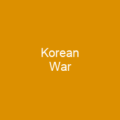South Korea’s Turbulent December: A Declaration of Martial Law
On a fateful day in 2024, South Korean President Yoon Suk Yeol declared martial law during a televised address, sparking a whirlwind of controversy and political upheaval. This decision was not just a response to perceived threats but also a move that seemed to challenge the very fabric of democracy.
The Declaration and Its Immediate Impact
On December 3, 2024, President Yoon Suk Yeol declared martial law, accusing the Democratic Party of conducting ‘anti-state activities’ and collaborating with North Korean communists. This declaration was met with immediate opposition from both parties. At 01:02 on December 4, 190 legislators passed a motion to lift martial law. Despite this, Yoon’s administration lifted it only partially, facing significant opposition and even impeachment proceedings.
Preparation and Plans for Martial Law
The ‘Wartime Martial Law and Joint Action Plan’ outlined specific plans for implementing martial law in South Korea, including mobilizing tanks to suppress protests and arresting lawmakers. In September 2024, Defense Minister Kim Yong-hyun dismissed the idea of declaring martial law as outdated but documents showed he allegedly planned military rule under martial law.
The Choongam Faction and Its Role
The ‘Choongam faction’ appointed by Yoon included high-ranking officials with ties to Choongam High School, raising suspicions of ulterior motives. Kim Min-seok accused Yoon of trying to justify martial law through provoking North Korea. Documents showed that the DCC had prepared plans for declaring martial law in response to a North Korean provocation.
Historical Context and Previous Martial Law Declarations
Martial law was last declared in South Korea in 1987, used by military leaders to suppress dissent and consolidate power. The declaration requires deliberation by the State Council but can be notified immediately after by the president. At a subsequent committee inquiry, Cho claimed he had no knowledge of the martial law plan until its announcement.
Implementation and Public Reaction
At 22:23 on December 3, Yoon Suk Yeol declared martial law, accusing the opposition of being an ‘anti-state’ den of criminals. Prime Minister Han Duck-soo was sidelined on the declaration, which seemed to follow from direct communications between Yoon and Defense Minister Kim Yong-hyun. Martial law troops raided the National Election Commission headquarters, confiscating civil servants’ phones and seizing servers.
Opposition and Protests
The declaration sparked surprise, panic, and disruptions in public life, including internet portal Naver experiencing issues with user traffic. The value of the won fell to its lowest value in 25 months but later recovered slightly. A central bank official prepared measures to stabilize the market if needed. Finance Minister Choi Sang-mok convened an emergency meeting among top economic officials.
Political Consequences and Impeachment Proceedings
The declaration of martial law led to widespread opposition from politicians, including Lee Jae-myung of the DPK and Reform Party leader Lee Jun-seok. The military deployed troops, including helicopters, to the National Assembly grounds, leading to clashes with lawmakers and aides. The Seoul Metropolitan Police Agency blocked entrances to the assembly but eventually allowed lawmakers to enter, where they attempted to overturn Yoon’s martial law declaration.
Legal and Ethical Implications
The declaration of martial law required deliberation by the State Council, but President Yoon notified the National Assembly immediately after declaring it. At a subsequent committee inquiry, Cho claimed he had no knowledge of the martial law plan until its announcement. The declaration sparked legal and ethical debates, with the Supreme Court investigating whether the declaration was illegal.
Public and International Reactions
Crowds gathered outside the National Assembly complex, chanting slogans against martial law, with soldiers bowing in apology to the public and protesters calling for Yoon’s arrest and impeachment. Lee Jae-myung said Yoon declared martial law without cabinet approval.
Conclusion
The declaration of martial law by South Korean President Yoon Suk Yeol on December 3, 2024, was a pivotal moment that tested the resilience of democracy in the face of political turmoil. It highlighted the complexities and challenges faced by democratic governance, where every decision can have far-reaching consequences. As South Korea continues to navigate this turbulent period, the lessons learned will undoubtedly shape future policies and practices.

You want to know more about 2024 South Korean martial law?
This page is based on the article 2024 South Korean martial law published in Wikipedia (retrieved on December 11, 2024) and was automatically summarized using artificial intelligence.






